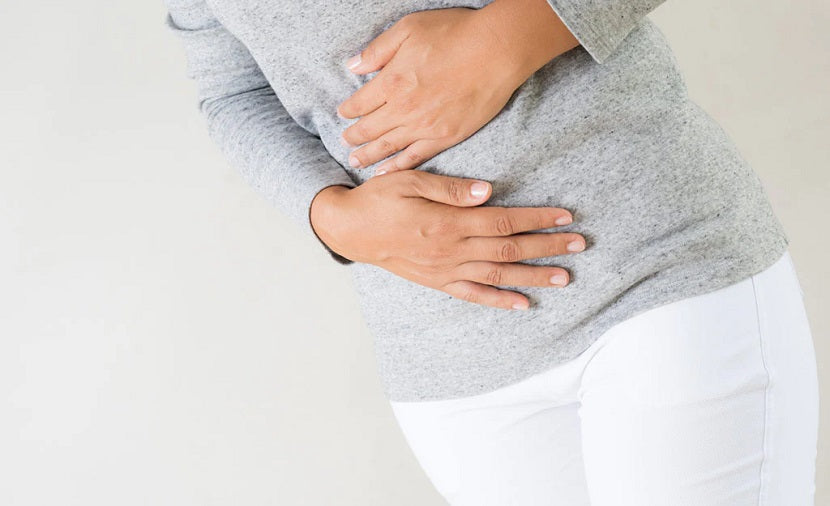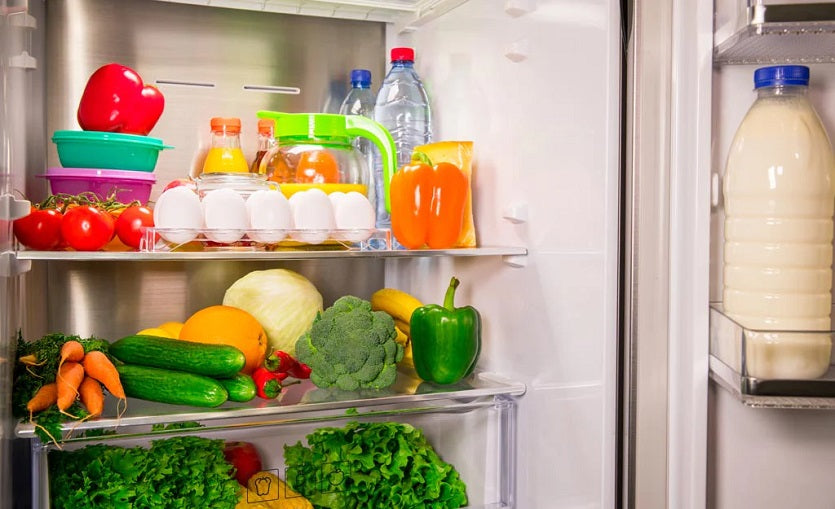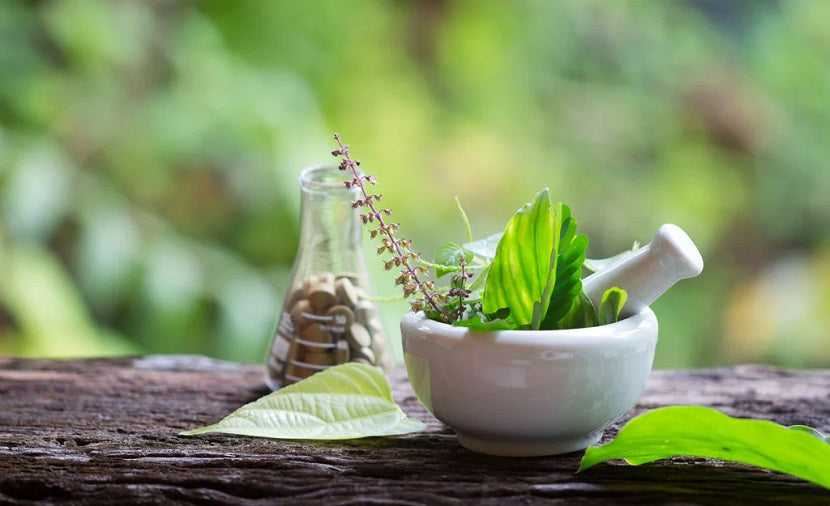Do you experience digestive symptoms like bloating?
Bloating is a condition wherein your belly feels full or swollen, especially after eating. While it is often caused by excess gas production, the sensation of fullness and discomfort in your abdomen can also be due to a number of different factors. These can include:
- Eating too fast
- Insufficient chewing
- Inadequate digestive enzyme production
- Overgrowth of pathogenic bacteria in the gut
- Oestrogen dominance
- Fibroids
- Polycystic ovary syndrome (PCOS)
- Chronic stress
- Food or chemical sensitivities
- Medication side effects (example: Metformin)
- Inflammation in the digestive mucosa
- Use of antibiotics
- Infection
- Candida overgrowth
- Insufficient bile production
- Constipation
- Irritable bowel syndrome or bowel disease
As you can see, there are many different reasons why you may be feeling bloated. But another reason could be down to an unhealthy gut.
Gut Health & Bloating
One way to improve digestive symptoms such as bloating, cramps, constipation, and heartburn is to improve your gut health.
Bloating is a common symptom of an unhealthy gut. When you frequently consume foods that are processed or high in sugar, the gut can find it difficult to process and eliminate waste. This can result in an upset stomach, sleep disturbance, and food intolerance.
The best way to address bloating and other common digestive issues is to supplement with a gut health powder like Happy Digestion. Happy Healthy You has developed this special formulation packed with prebiotics and probiotics to enhance digestive health, regulate bowel movements, reduce bloating, and optimise gut function.

How To Improve Gut Health: Dietary Changes
In addition to taking digestive supplements, you can take many other beneficial steps to improve gut health and manage or prevent bloating.
Drink Bone Broth
Make your own or purchase in the store. Choose organic and free-range options when possible. Bone broth is full of gelatin for collagen production which is incredibly healing to your mucosa (the inner surface of the stomach) and, as a bonus, is excellent for skin health. You can find another recipe here.
Eat More Bitter Foods
Did you know that our digestive tract has bitter taste buds? When these are stimulated, we produce digestive enzymes which support healthy food breakdown with the help of the liver. Think cruciferous vegetables (sprouts, cabbage, kale broccoli), cacao, grapefruit, citrus fruits, chicory, cauliflower, artichokes, and dandelion root tea.
Eat Fermented Foods Regularly
When we eat fermented foods, we eat the beneficial bacteria – the probiotics – that the food contains. This is important because we need a diverse population of bacteria in our gut for better digestion, improved mood, and increased immunity.
Some examples can include kombucha, kimchi, or a probiotic yogurt.
Another easy and quick way to make sure you are getting a regular supply of LIVE probiotics is to bring Happy Greens or Happy Turmeric into your diet. Just add it to your daily juice or smoothie for a boost of health and an improved gut.
Choose Cooked Over Raw
This will promote blood flow to your abdomen and help your digestive system to break down and absorb nutrients more easily. Think soups, roasted veggies, stir-fried foods, stews, curries and anything cooked in the slow cooker. Add turmeric (our product Happy Turmeric can be a great option), cinnamon, and ginger to meals and smoothies.
Avoid Food That Worsen Symptoms
Common irritants can include gluten, dairy, refined sugar, raw food, fructo-oligosaccharides, alcohol, spicy food, and caffeine. Steer clear of all additives, preservatives, colourings, MSG, anti-caking agents and sulfites.

Drink Herbal Tea
A small cup of herbal tea such as peppermint, chamomile, ginger, cardamon, fennel, or cinnamon (all without black tea) can enhance digestion. One tbsp of ACV in water before meals works as well.
Mucilaginous Foods
These provide a protective layer and help manage inflammation. Here are a few suggestions:
- Slippery elm powder - 1 tbsp mashed into a banana
- Chia or flaxseed - 1 tbsp soaked in a glass of water
- Pure aloe vera juice - 25 ml morning and night (You can also simply eat the gel inside the fresh leaf.)
- Psyllium husk –1 tbsp mixed in a tall glass of water (Warm water makes it more palatable. Take with caution if you have very sensitive digestive tracts.)
Take Digestive Enzymes
Digestive Enzymes assist to help break down the food you eat. They help to turn nutrients into substances your digestive tract can absorb.
For improved digestion it is good to make sure to eat foods such as avocados, honey, mangoes, and bananas.
Another way to easily consume digestive enzymes is through taking our daily supplement Happy Liver. This natural supplement works to protect the liver, support digestive system health, and relieve digestive discomfort.
Other Ways To Improve Gut Health
There are some lifestyle changes you can also make to improve gut health, relieve indigestion, and say goodbye to inconvenient bloating.
Eat Slowly
Bacteria, fungi, and yeast in your digestive tract are more likely to feed on food that is only partially digested. This then leads to fermentation and uncomfortable symptoms such as bloating and gas. Make sure to eat with mindfulness and chew well for proper digestion.

Eat When Relaxed
Digestion is hugely affected by your emotional state. Stress impairs the secretion of digestive enzymes. This leads to poorly digested food and imbalances in protective bacteria in the gut.
Try to reduce stress before meal times and talk through your feelings with a loved one or health practitioner. Try mindfulness or meditation before eating to feel calmer and ensure healthy digestion.
Stay Hydrated
Drinking plenty of water is important for having a balance of good bacteria in the gut.
Get Enough Sleep
Making sure you get enough sleep is important for optimal gut health. Try to prioritise getting at least 7-8 hours of sleep each night. For better sleep try to avoid eating a few hours before bed (particularly foods high in sugar), avoid screens, and try reading.
To Summarise
These are our suggestions for improving gut health, relieving digestive symptoms, and reducing bloating. Try to bring as many of these suggestions into your lifestyle or diet for optimal health. With these suggestions you can get back to enjoying eating and feeling comfortable again -- when we make small changes we can get rid of bloating for good!
Though these suggestions aim to help your symptoms, if they persist it is important to consult your local health practitioner to rule out a more serious condition.

REFERENCES
Aucoin, M., Lalonde-Parsi, M. J., & Cooley, K. (2014). Mindfulness-based therapies in the treatment of functional gastrointestinal disorders: a meta-analysis. Evidence-based complementary and alternative medicine : eCAM, 2014, 140724.
https://www.ncbi.nlm.nih.gov/pmc/articles/PMC4177184/
Dale, H. F., Rasmussen, S. H., Asiller, Ö. Ö., & Lied, G. A. (2019). Probiotics in Irritable Bowel Syndrome: An Up-to-Date Systematic Review. Nutrients, 11(9), 2048.
https://www.ncbi.nlm.nih.gov/pmc/articles/PMC6769995/
Graham, D. Y., Ketwaroo, G. A., Money, M. E., & Opekun, A. R. (2018). Enzyme therapy for functional bowel disease-like post-prandial distress. Journal of digestive diseases, 19(11), 650–656.
https://www.ncbi.nlm.nih.gov/pmc/articles/PMC6910206/
Iovino, P., Bucci, C., Tremolaterra, F., Santonicola, A., & Chiarioni, G. (2014). Bloating and functional gastro-intestinal disorders: where are we and where are we going?. World journal of gastroenterology, 20(39), 14407–14419.
https://www.ncbi.nlm.nih.gov/pmc/articles/PMC4202369/"
Janssen, S., Laermans, J., Verhulst, P. J., Thijs, T., Tack, J., & Depoortere, I. (2011). Bitter taste receptors and α-gustducin regulate the secretion of ghrelin with functional effects on food intake and gastric emptying. Proceedings of the National Academy of Sciences of the United States of America, 108(5), 2094–2099.
https://www.ncbi.nlm.nih.gov/pmc/articles/PMC3033292/
Mulak, A., Taché, Y., & Larauche, M. (2014). Sex hormones in the modulation of irritable bowel syndrome. World journal of gastroenterology, 20(10), 2433–2448.
https://www.ncbi.nlm.nih.gov/pmc/articles/PMC3949254/








Leave a comment
This site is protected by hCaptcha and the hCaptcha Privacy Policy and Terms of Service apply.